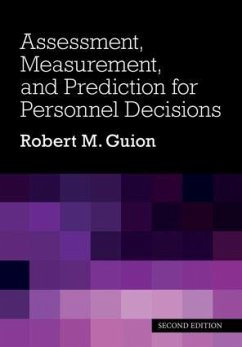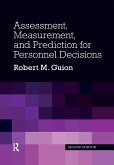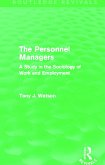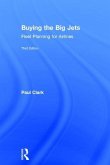Robert Guion's best seller is now available in this new second edition. This noted book offers a comprehensive and practical view of assessment -based personnel decisions not available elsewhere in a single source. This edition more frankly evaluates the current research and practice and presents challenges that will change the basic thinking about staffing systems. This new edition suggests new directions for research and practice, includes emphasis on modern computers and technology useful in assessment, and pays more attention to prediction of individual growth and globalization challenges in the assessment process. The book will be of interest to faculty and students in Industrial Organizational psychology, human resource management and business. IO psychologists in private business and public sector organizations who have responsibilities for staffing and an interest in measurement and statistics will find this book useful.
Hinweis: Dieser Artikel kann nur an eine deutsche Lieferadresse ausgeliefert werden.
Hinweis: Dieser Artikel kann nur an eine deutsche Lieferadresse ausgeliefert werden.








